2013 Awardees
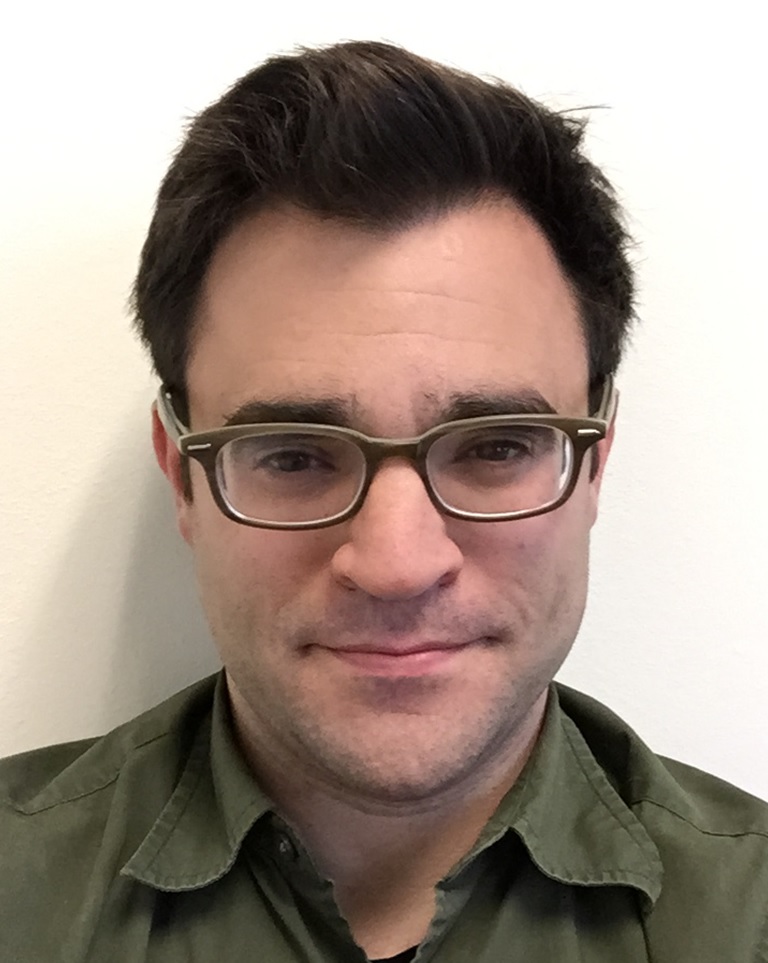
Hillel Adesnik, Ph.D.
University of California, Berkeley
Project Title: New Optical Strategies to Unlock the Neural Basis of Perception
Grant ID: DP2-NS087725
Hillel Adesnik received his Ph.D. at UCSF under Roger Nicoll, where worked on the molecular mechanisms of learning and memory. He did his postdoctoral work with Massimo Scanizani at UCSD where he studied cortical microcircuitry underlying spatial computations in the brain. He is currently an Assistant Professor of Neurobiology at UC Berkeley. His lab's goal is to develop and leverage new optical tools to address the neural basis of perception and neural computation in the cerebral cortex.

Jennifer Ahern, Ph.D.
University of California, Berkeley
Project Title: A Rigorous System to Determine the Health Impacts of Policies and Programs
Grant ID: DP2-HD080350
Dr. Jennifer Ahern, Ph.D., M.P.H., is an Associate Professor of Epidemiology at the University of California, Berkeley, and a Chancellor’s Professor. She examines the effects of the social and physical environment, and programs and policies that alter the social and physical environment, on many aspects of health (e.g., substance use, mental health, violence, and gestational health). Dr. Ahern has a methodological focus to her work, including application of causal inference methods and semi-parametric estimation approaches, aimed at improving the rigor of observational research, and optimizing public health intervention planning.

Bree B. Aldridge, Ph.D.
Tufts University
Project Title: Quantitative Design of Multi-Drug Regimens for Tuberculosis
Grant ID: DP2-LM011952
Bree Aldridge is an assistant professor in the Department of Molecular Biology and Microbiology and an adjunct assistant professor in the Department of Biomedical Engineering at Tufts University. Dr. Aldridge began combining biology and engineering during her undergraduate work at the University of Arizona, where she completed B.S. degrees in Molecular and Cellular Biology and Computer Engineering and worked with Drs. Samuel Ward and François Cellier. She went on to train with Drs. Douglas Lauffenburger and Peter Sorger during her graduate studies in Biological Engineering at MIT. During her Ph.D., Dr. Aldridge developed computational and experimental techniques to understand the complexity of cell fate decisions in cancer cells. She then trained with Dr. Sarah Fortune at the Harvard School of Public Health where she established tools to study cell-to-cell heterogeneity in mycobacteria. Her lab uses quantitative, single cell approaches to understand drug tolerance and virulence in Mycobacterium tuberculosis.

Sara Aton, Ph.D.
University of Michigan
Project Title: Linking Network Activity and Intracellular Plasticity Mechanisms During Sleep-Dependent Memory Consolidation
Grant ID: DP2-MH104119
Sara Aton is an Assistant Professor in the Department of Molecular, Cellular, and Developmental Biology at the University of Michigan. Her Ph.D. thesis research, which identified intercellular and intracellular signaling pathways required for neural network dynamics within the mammalian circadian clock, was carried out in the laboratory of Dr. Erik Herzog at Washington University in St. Louis. She then carried out postdoctoral research aimed at identifying cellular and network mechanisms for sleep dependent plasticity in the developing visual system, in the laboratory of Dr. Marcos Frank at the University of Pennsylvania. The Aton lab now investigates two sleep-dependent processes in the adult mammalian brain - response plasticity in thalamocortical circuits following novel sensory experience, and consolidation of hippocampally-mediated long-term memory following single-trial learning. These studies employ a combination of cutting-edge electrophysiological, opto- and pharmacogenetic, behavioral, biochemical, and computational techniques to elucidate the role of sleep in promoting brain plasticity.

Catherine A. Blish, M.D., Ph.D.
Stanford University School of Medicine
Project Title: Harnessing Natural Killer Cell Memory to Fight Viruses
Grant ID: DP2-AI112193
Catherine Blish, M.D., Ph.D. is an Assistant Professor of Medicine and Immunology at the Stanford University School of Medicine and an Assistant Director of the Stanford Medical Scientist Training Program (MSTP). Her research aims to understand the successes and failures of the immune system in order to better harness it to prevent infections. After receiving a B.S. in Biochemistry with Highest Honors from the University of California, Davis, she matriculated in the MSTP at the University of Washington School of Medicine, receiving her M.D. and a Ph.D. in Immunology. After residency in Internal Medicine she pursued a fellowship in Infectious Disease and the University of Washington, with a research focus on immune correlates of HIV-1 infection. She has received numerous awards for research and mentoring, including the Stanford Immunology Outstanding Faculty Mentor Award, the ICAAC Young Investigator Award from the American Society for Microbiology, the Beckman Young Investigator Award, the McCormick Faculty Award, the Baxter Faculty Scholar, and the Doris Duke Charitable Foundation Clinical Scientist Development Award.

Jason M. Crawford, Ph.D.
Yale University
Project Title: Cryptic Gut Bacterial Metabolites that Regulate Colorectal Cancer Formation
Grant ID: DP2-CA186575
Jason M. Crawford has been an Assistant Professor of Chemistry and of Microbial Pathogenesis and a Member of the Chemical Biology Institute at Yale University since 2012. He carried out his doctoral research with Craig Townsend at the Johns Hopkins University, studying the biosynthesis of complex aromatic polyketide metabolites. He then carried out his postdoctoral research with Jon Clardy at Harvard Medical School, elucidating the structures of metabolites from novel secondary metabolic pathways that regulate host-bacteria interactions. He concluded his postdoctoral training as a National Institutes of Health Pathway to Independence Fellow with Jon Clardy, Christopher Walsh, and Roberto Kolter. The Crawford lab combines the disciplines of microbial biosynthesis, genetics, metabolomics, and small molecule structural elucidation to discover and characterize new bacterial metabolic pathways that regulate human host biology, such as the bacterial contributions to colorectal cancer development.

Arvin Dar, Ph.D.
Icahn School of Medicine at Mount Sinai
Project Title: Targeting Ras-Dependent Cancers with a Chemical Switch for an Inactive Kinase
Grant ID: DP2-CA186570
Arvin Dar is an Assistant Professor of Oncological Sciences and Structural and Chemical Biology at the Icahn School of Medicine at Mount Sinai. He graduated with a B.Sc. in Chemistry from the University of Western Ontario and then completed his Ph.D. thesis at the University of Toronto in 2006. His thesis was done in the laboratory of Frank Sicheri where he studied the structure and regulation of protein complexes and viral inhibitors. Dr. Dar conducted postdoctoral studies with Kevan Shokat at the University of California, San Francisco, where he developed small molecule tools to control kinase structure and signaling in normal and cancer cells. Dr. Dar’s current research focuses on the use of target-based and systems pharmacology approaches to generate new classes of small molecule modulators for Ras-dependent cancers. Dr. Dar’s honors and awards include a Department of Defense Postdoctoral Fellowship, a UCSF Dean’s Prize, Innovator Awards from the NIH and the Damon-Runyon-Rachleff Foundation, a Pew-Stewart Scholarship in Cancer Research, and a Young Investigator Award from the Pershing Square Sohn Cancer Research Alliance.

Rahul C. Deo, M.D., Ph.D.
University of California, San Francisco
Project Title: Resolving Incomplete Penetrance in the Cardiomyopathies and Channelopathies
Grant ID: DP2-HL123228

Maximilian Diehn, M.D., Ph.D.
Stanford University
Project Title: Developing a Genomic Approach for Cancer Screening
Grant ID: DP2-CA186569

Jeffrey D. Dvorin, M.D., Ph.D.
Boston Children's Hospital and Harvard Medical School
Project Title: Essential Gene Discovery in the Malaria Parasite Plasmodium falciparum
Grant ID: DP2-AI112219
Jeffrey Dvorin is an Assistant Professor in Pediatrics at Harvard Medical School and an Associate Physician of Infectious Diseases at Boston Children’s Hospital. After he earned his M.D. and Ph.D. from the University of Pennsylvania, he completed a Pediatrics residency at Children’s Hospital of Philadelphia, and then a fellowship in Infectious Diseases at Boston Children’s Hospital. He completed his postdoctoral training at the Harvard School of Public Health in the laboratory of Manoj Duraisingh. In his laboratory, Dr. Dvorin’s research focuses on the molecular pathogenesis of infection by the human malaria parasite Plasmodium falciparum. His laboratory utilizes novel genetic techniques to understand the function of essential genes in the parasite.

Aaron P. Esser-Kahn, Ph.D.
University of California, Irvine
Project Title: Directing the Immune System Via Polymeric Combinations of Molecular Signals
Grant ID: DP2-AI112194
Aaron Esser-Kahn is an Asst. Prof. of Chemistry at UC Irvine. His work looks at developing novel, chemical methods to activate and direct the immune system. His interests include spatial and temporal control of innate immune signaling and applications of adjuvant and vaccine development. He earned a Ph.D. at UC Berkeley as part of Chemical Biology Program. He was a post-doc a University of Illinois Urbana-Champaign working with the Autonomous Materials Systems group.

Scott E. Evans, M.D.
The University of Texas M.D. Anderson Cancer Center
Project Title: Inducible Epithelial Antiviral Resistance to Prevent Asthma
Grant ID: DP2-HL123229
Scott E. Evans is an Associate Professor in the Department of Pulmonary Medicine at the University of Texas MD Anderson Cancer Center. He received his doctoral degree at the University of Texas Medical School at San Antonio and completed his postdoctoral research training in the laboratory of Andrew H. Limper at the Mayo Clinic. Dr. Evans joined the faculty at MD Anderson in 2005 to study the prevention and management of pneumonia in the immunocompromised host. He directs a research program focused on manipulation of lung mucosal defenses to protect against pneumonia. Using a combination of mouse genetics and in vitro modeling, his laboratory has discovered a broadly protective therapeutic that is now in clinical trials.
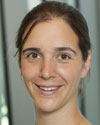
Dorothea Fiedler, Ph.D.
Princeton University
Project Title: Understanding Phosphate Metabolism in Cancer and Metastasis
Grant ID: DP2-CA186753

Adam Frost, M.D., Ph.D.
University of Utah School of Medicine
Project Title: Toward Atomic Resolution of Membranes and Membrane-Associated Machines
Grant ID: DP2-GM110772

Sunil P. Gandhi, Ph.D.
University of California Irvine
Project Title: Rewiring Cortex Using Inhibitory Neuron Transplantation
Grant ID: DP2-EY024504
Sunil Gandhi is an Assistant Professor in the Department of Neurobiology and Behavior and a Fellow of the Center for the Neurobiology of Learning and Memory at the University of California, Irvine. He received a B.S. from Stanford University where he conducted research on visual attention in the laboratory of Dr. David Heeger. He earned his Ph.D. at University of California, San Diego working with Dr. Charles Stevens at the Salk Institute on synaptic vesicle recycling. He did his postdoctoral training at University of California, San Francisco with Dr. Michael Stryker studying the role of inhibition in cortical plasticity. He is a Searle Scholar, a Klingenstein-Simons Fellow and a recipient of the NIH Director’s New Innovator Award. His laboratory is focused on understanding the cellular mechanisms that create critical periods in brain development.

Zev J. Gartner, Ph.D.
University of California, San Francisco School of Pharmacy
Project Title: Total Synthesis of the Human Mammary Gland
Grant ID: DP2-HD080351
Zev Gartner is native to Santa Cruz, California. He received his B.S. in Chemistry from UC Berkeley in 1999, where he conducted undergraduate research in the laboratory of Y. K. Shin. He received his Ph.D. in Chemical Biology from Harvard University in 2004, where he worked with Professor David Liu to develop DNA-Templated Synthesis as a strategy for building and evolving drug-like small molecules. In 2005 he returned to UC Berkeley for postdoctoral training with Professor Carolyn Bertozzi. While in Professor Bertozzi’s lab, he explored DNA Programmed Assembly as a bottom-up method for building three-dimensional tissues. He is currently an Associate Professor in the Department of Pharmaceutical Chemistry at the University of California, San Francisco. Research in the Gartner Lab is focused on the role of tissue self-organization and other collective cell behaviors in human development and disease.

Viviana Gradinaru, Ph.D.
California Institute of Technology
Project Title: Neuromodulation and Neurodegeneration: the Missing Link and Mechanisms of Action
Grant ID: DP2-NS087949
Dr. Viviana Gradinaru is Assistant Professor of Biology and Biological Engineering at Caltech as well as the faculty director of the Beckman Institute Center for Optogenetics and CLARITY. She has recently been awarded the NIH Director’s New Innovator Award and been honored as a World Economic Forum Young Scientist and as one of Cell’s 40 under 40. Viviana is also a Sloan Fellow, Pew Scholar, Human Frontier Science Program Young Investigator, and Kimmel Scholar for Cancer Research.
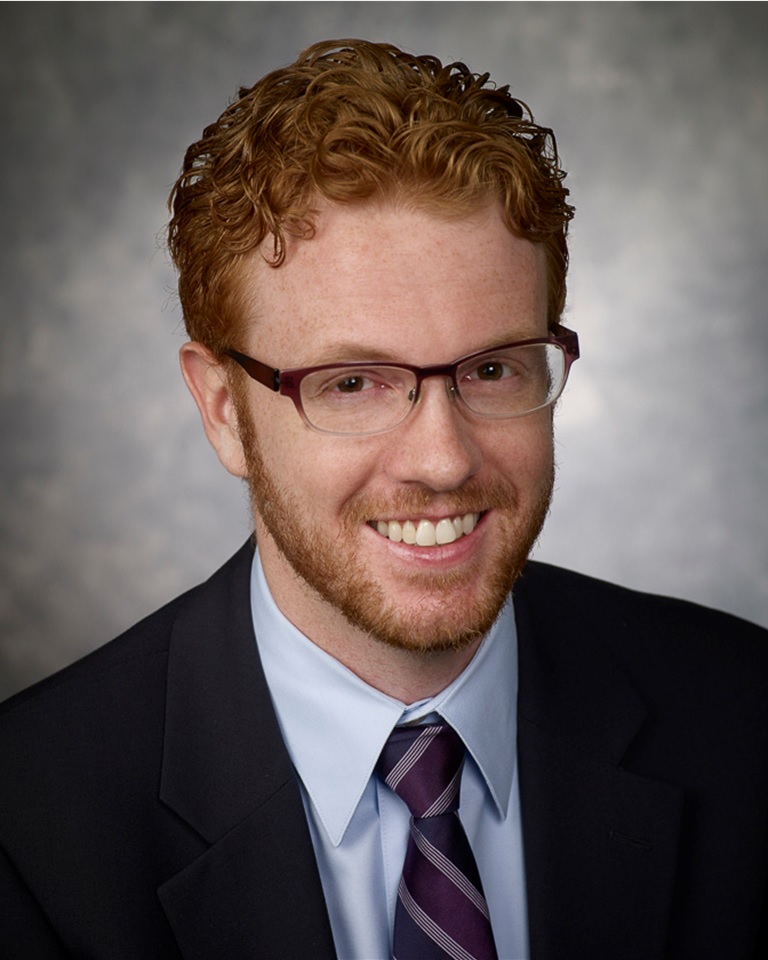
Robert D. Gregg IV, Ph.D.
University of Texas at Dallas
Project Title: Phase-Based Control of Locomotion for High-Performance Prostheses and Orthoses
Grant ID: DP2-HD080349
Robert D. Gregg IV received the B.S. degree in electrical engineering and computer sciences from the University of California, Berkeley in 2006 and the M.S. and Ph.D. degrees in electrical and computer engineering from the University of Illinois at Urbana-Champaign in 2007 and 2010, respectively. He joined the Departments of Bioengineering and Mechanical Engineering at the University of Texas at Dallas (UTD) as an Assistant Professor in June 2013. Prior to joining UTD, he was a Research Scientist at the Rehabilitation Institute of Chicago and a Postdoctoral Fellow at Northwestern University. His research concerns the control mechanisms of bipedal locomotion with application to wearable control systems, including powered prostheses and orthoses. Dr. Gregg is a recipient of the NIH Director’s New Innovator Award, the Career Award at the Scientific Interface from the Burroughs Wellcome Fund, and the 2009 O. Hugo Schuck Award from the IFAC American Automatic Control Council.

Scott B. Hansen, Ph.D.
The Scripps Research Institute
Project Title: Molecular Mechanism of Mechanosensation
Grant ID: DP2-NS087943

Tracey J. Lamb, Ph.D.
Emory University School of Medicine
Project Title: The Development of Probiotic Yeast as an Inexpensive Vaccine Delivery Platform
Grant ID: DP2-AI112242

Julius B. Lucks, Ph.D.
Cornell University
Project Title: A New High-Throughput Technology to Reveal the Dynamic Functional States of RNAs
Grant ID: DP2-GM110838
Julius B. Lucks is Assistant Professor of Chemical and Biomolecular Engineering at Cornell University. His research combines both experiment and theory to ask fundamental questions about the design principles that govern how RNAs fold and function in living organisms, and how these principles can be used to engineer biomolecular systems. As a Miller Fellow, he pioneered the development of the first RNA-based synthetic genetic circuits, and was the leader of the team that created SHAPE-Seq – a technology that uses next generation sequencing to characterize RNA structures in unprecedented throughput, and that is now being used to uncover the role of RNA structure in regulating fundamental cellular processes across the genome. His lab focuses on dynamically programming cellular behavior with synthetic RNA circuitry, and using/developing SHAPE-Seq to understand RNA folding dynamics in the cell. For his pioneering research efforts, he has been named a DARPA Young Faculty Awardee, an Alfred P. Sloan Foundation Research Fellow, an ONR Young Investigator, an NIH New Innovator, and has been named an NSF CAREER awardee.

Linsey C. Marr, Ph.D.
Virginia Tech
Project Title: The Role of Pathogen-Environment Interactions in the Pandemic Potential of Influenza
Grant ID: DP2-AI112243
Linsey Marr is a professor of Civil and Environmental Engineering at Virginia Tech. Her research group studies the emissions, transformation, transport, and fate of air pollutants. She is especially interested in emerging or non-traditional aerosols such as engineered nanomaterials and viral pathogens. She received a B.S. in Engineering Science from Harvard College and a Ph.D. in Civil and Environmental Engineering from the University of California at Berkeley. She completed postdoctoral training in Earth, Atmospheric, and Planetary Sciences at the Massachusetts Institute of Technology.
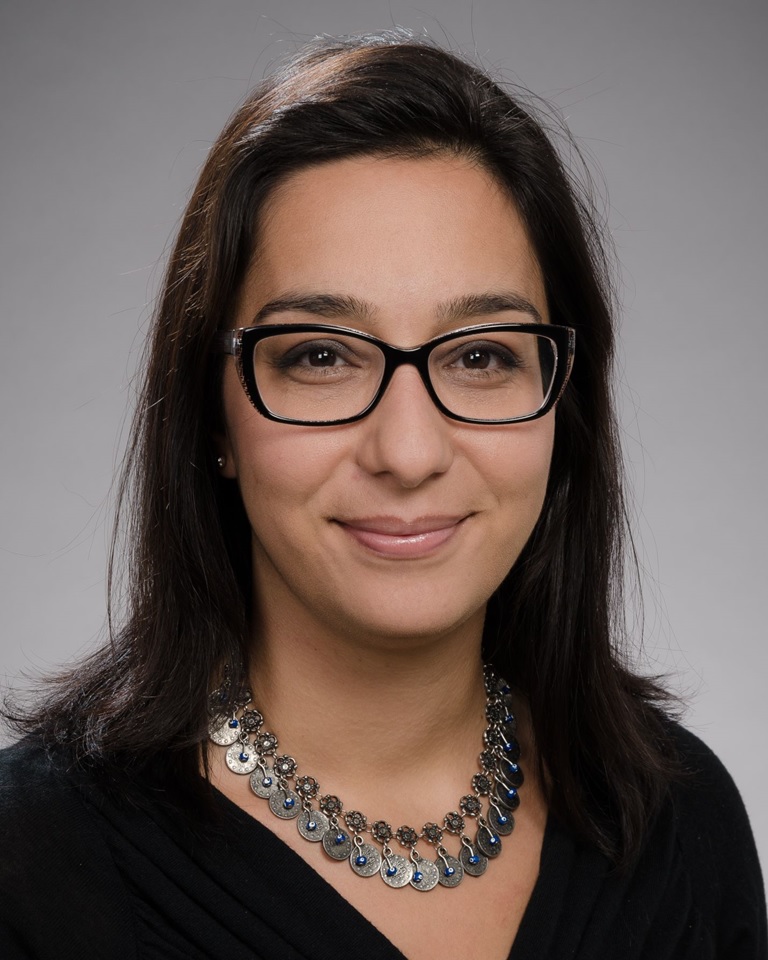
Houra Merrikh, Ph.D.
University of Washington School of Medicine
Project Title: Targeted Gene Evolution Via Replication-Transcription Conflicts
Grant ID: DP2-GM110773
Houra Merrikh received her Ph.D. in Molecular and Cellular Biology from Brandeis University in 2009. Her Ph.D. work focused on DNA damage responses in E. coli. She was a NIH postdoctoral fellow at the Massachusetts Institute of Technology from 2009 until 2011, where she studied DNA replication in B. subtilis. Upon completion of her postdoctoral training in Alan Grossman’s lab at MIT, she initiated her own research program at the University of Washington Medical School. Dr. Merrikh’s research is focused on understanding how impediments to DNA replication, such as transcription, impact the structure of the replisome, general physiology, genomic instability, and evolution in bacteria.

Ali Mortazavi, Ph.D.
University of California Irvine
Project Title: Comparative Analysis of the 4D Encoding of Regulatory Networks in Stem Cells
Grant ID: DP2-GM111100

Ryan M. O’Connell, Ph.D.
University of Utah
Project Title: Utilizing TALEN Technology to Regulate Human microRNAs
Grant ID: DP2-GM111099
Ryan O’Connell is an Assistant Professor at the University of Utah in the Department of Pathology. His postdoctoral studies were performed in David Baltimore’s laboratory at the California Institute of Technology where he began working in the area of microRNAs following his graduate training in Immunology at UCLA. Dr. O’Connell’s research has been focused on studying the roles of microRNAs in regulating both physiological and pathological hematopoietic development in mammals, with a focus on inflammation and cancer. Over the past decade his work has contributed significantly to our current understanding of the importance of microRNAs during the development, function and transformation of immune cells. Dr. O’Connell is currently working towards a further understanding of how microRNAs and other types of noncoding RNAs regulate inflammation and cancer, and exploring novel approaches to targeting this class of molecules to combat human disease.

Jukka-Pekka Onnela, Ph.D.
Harvard University
Project Title: Using Mobile Phones for Social and Behavioral Sensing of Mood Disorder Patients
Grant ID: DP2-MH103909
Jukka-Pekka “JP” Onnela is an Assistant Professor in the Department of Biostatistics at the Harvard T.H. Chan School of Public Health. His research focuses on statistical network science with applications to social and biological networks. His other main research area is digital phenotyping, the moment-by-moment quantification of the individual-level human phenotype using data from digital devices. Dr. Onnela was previously a Postdoctoral Research Fellow at Harvard Medical School, a Fulbright Visiting Scholar at the Harvard Kennedy School, and a Junior Research Fellow at Oxford University. He obtained his doctorate in network science at the Helsinki University of Technology in 2006.

Christian Petersen, Ph.D.
Northwestern University
Project Title: Regulatory Circuits Controlling Regenerative Growth
Grant ID: DP2-DE024365

Shelly Peyton, Ph.D.
University of Massachusetts
Project Title: Tissue-Specific Stem Cells and Breast Cancer Tissue Tropism
Grant ID: DP2-CA186573
Shelly Peyton was born in Coffeyville, Kansas. She received her B.S. in Chemical Engineering from Northwestern University in 2002, where she worked in the lab of Annelise Barron on surface chemistry for the human genome project. She received her Ph.D. in Chemical Engineering from the University of California, Irvine and worked for Andrew Putnam on how tissue stiffness contributes to smooth muscle pathology during atherosclerosis. Her postdoctoral research was at MIT, co-advised with Linda Griffith and Doug Lauffenburger in Biological Engineering, where she designed scaffolds to accelerate stem cell motility into wound sites for tissue regeneration. She is currently Assistant Professor of Chemical Engineering at the University of Massachusetts, Amherst. The Peyton lab engineers designer synthetic tissues to understand how cell-microenvironment interactions contribute to disease.

Vanessa Ruta, Ph.D.
Rockefeller University
Project Title: Connecting Neural Plasticity to Learning and Memory
Grant ID: DP2-NS087942
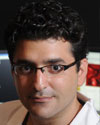
Ozgur Sahin, Ph.D.
Columbia University
Project Title: Novel Sub-Cellular Chemical and Mechanical Nanoimaging
Grant ID: DP2-EB018657
Ozgur Sahin is an Associate Professor of Biological Sciences and Physics at Columbia University. His research group is investigating energy conversion in biological nanostructures, developing nanomechanical approaches to determine structures of biomolecular complexes, and studying cell mechanics. Dr. Sahin is recognized for inventing a nanoscale microscope that can visualize mechanical properties of molecules, cells, and materials, for which he won the Grand Prize at the Collegiate Inventors Competition. He received a Junior Fellowship from the Rowland Institute at Harvard and a Packard Fellowship from the David & Lucile Packard Foundation.
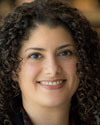
Shomyseh Sanjabi, Ph.D.
The J. David Gladstone Institutes
Project Title: Characterizing HIV Latent Reservoir In Vivo
Grant ID: DP2-AI112244
Shomyseh Sanjabi is an assistant investigator at the Gladstone Institute of Virology and Immunology and the Roddenberry Center for Stem Cell Biology and Medicine, and an assistant professor in the department of Microbiology and Immunology at the University of California, San Francisco (UCSF). She earned a bachelor’s degree in microbiology and molecular genetics from the University of California, Los Angeles (UCLA) in 1997. She earned her Ph.D. in microbiology, immunology and molecular genetics in 2003 from UCLA working with Dr. Stephen Smale on molecular mechanism of NFk-B family member specificity. She was a recipient of Cancer Research Institute Postdoctoral Fellowship and did her postdoctoral training in immunobiology at Yale University with Dr. Richard Flavell studying the role of TGF-ß signaling in CD8+ T cell biology. As a junior faculty, she has been the recipient of Hellman Family Career Faculty Award, Creative and Novel Ideas in HIV Research Award, and NIH Director’s New Innovator Award. Her laboratory studies mucosal anti-viral immunity, to better understand the mechanisms and factors that govern the innate and adaptive immune responses in the female reproductive tract and the rectum, the portals of viral entry during sexual viral transmission

Elizabeth Sattely, Ph.D.
Stanford University
Project Title: Liberation of Plant Nutrients by the Gut Microbiota
Grant ID: DP2-AT008321

David Savage, Ph.D.
University of California, Berkeley
Project Title: Fluorescent Biosensors for Metabolite Imaging in Live Cells
Grant ID: DP2-EB018658
Dave Savage is an Assistant Professor of Biochemistry, Biophysics, and Structural Biology in the Departments of Molecular & Cell Biology and Chemistry at the University of California, Berkeley. He was previously a graduate student in Biophysics with Robert Stroud at UCSF and a postdoctoral fellow with Pamela Silver at Harvard Medical School. His lab is broadly interested in microbial physiology and in developing new tools for the understanding and engineering of biology. For this work, he has been named an Alfred P. Sloan Foundation Research Fellow, a DOE Early Career Awardee, and a NIH New Innovator.
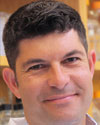
Marco Seandel, M.D., Ph.D.
Weill Cornell Medical College
Project Title: Clonal Competition in Stem Cells as a Driver of Paternal Age Effect Diseases
Grant ID: DP2-HD080352
Dr. Marco Seandel is an Assistant Professor of Cell and Developmental Biology in Surgery at Weill Cornell Medical College. Dr. Seandel received his M.D./Ph.D. from the State University of New York at Stony Brook, completed his internal medicine residency at New York-Presbyterian/Weill Cornell Medical Center and his medical oncology fellowship at Memorial Sloan Kettering Cancer Center. His lab is keenly interested in the mechanisms by which monogenic and complex disorders become increasingly prevalent in children as a function of the father’s age at the time of conception. He uses adult spermatogonial stem cells in vitro, stem cell transplantation, human genomics, and mouse models to understand the origin and mechanisms of human disease.

Sivaraj Sivaramakrishnan, Ph.D.
University of Michigan
Project Title: The Kinase Toolbox: Mapping the Spatial and Temporal Regulation of Cell Signaling
Grant ID: DP2-CA186752

Derek J. Taylor, Ph.D.
Case Western Reserve University
Project Title: Induction of Cancer Cell Death by Selective DNA Misincorporation
Grant ID: DP2-CA186571
Derek Taylor grew up in southwestern Colorado and attended Fort Lewis College where he received a B.S. in Chemistry and Cell and Molecular Biology. After working for two years in the Pharmaceutical Industry, Derek entered graduate school at the University of California, San Diego. Derek's Ph.D. thesis focused on molecular virology and macromolecular structure and function. As a postdoctoral fellow, Derek's research concentrated on understanding ribosome dynamics and the molecular mechanism of protein synthesis. To do so, he used cryo-electron microscopy to determine the structure of release and elongation factors bound to the eukaryotic ribosome. As an Assistant Professor, Derek's research has continued with the overall theme of understanding nucleoprotein complexes at a molecular level. His lab currently works on telomeres and telomerase.

Anna D. Tischler, Ph.D.
University of Minnesota Medical School
Project Title: High-Throughput Identification of Mycobacterium tuberculosis Persistence Mechanisms
Grant ID: DP2-AI112245
Anna Tischler is an Assistant Professor in the Department of Microbiology and Immunology at the University of Minnesota, where her lab focuses on persistence mechanisms of the bacterial pathogen Mycobacterium tuberculosis. She received a B.A. with high honors in Biology from Swarthmore College in 1999 and completed her Ph.D. training in Molecular Microbiology at Tufts University in 2005. During her graduate training with Dr. Andrew Camilli, Dr. Tischler identified the novel cyclic dinucleotide second messenger c-di-GMP as an important regulator of biofilm formation and virulence in the bacterial pathogen Vibrio cholera, the causative agent of cholera. As a post-doctoral fellow in the lab of Dr. John McKinney, she identified a Mycobacterium tuberculosis phosphate-sensing signal transduction system that is critical for bacterial evasion of host adaptive immune responses. Her lab is continuing to study this phosphate-sensing system and to elucidate other mechanisms that M. tuberculosis uses to persist in immune-competent hosts using bacterial genetics, animal models of infection, and high-throughput sequencing technologies.

Kay M. Tye, Ph.D.
Massachusetts Institute of Technology
Project Title: A Novel Strategy for Combating Obesity: Reprogramming Neural Circuits
Grant ID: DP2-DK102256
Kay Tye joined the faculty at MIT as an assistant professor in 2012, and is a member of the Picower Institute for Learning and Memory. Her lab is interested in understanding the neural circuits that allow us to assign positive or negative emotional valence to environmental stimuli. Perturbances in these circuits could give rise to a wide range of pathological states including anxiety, depression and addiction or compulsive overeating. She received her B.S. at MIT, her Ph.D. at UCSF and conducted her postdoctoral work at Stanford University. She has been recognized as as the recipient of the Harold Edgerton Faculty Achievement Award, was named one of TechReview's Top 35 Innovators Under 35, is a New York Stem Cell Foundation Neuroscience Robertson Investigator, a NARSAD Young Investigator and a McKnight Scholar.
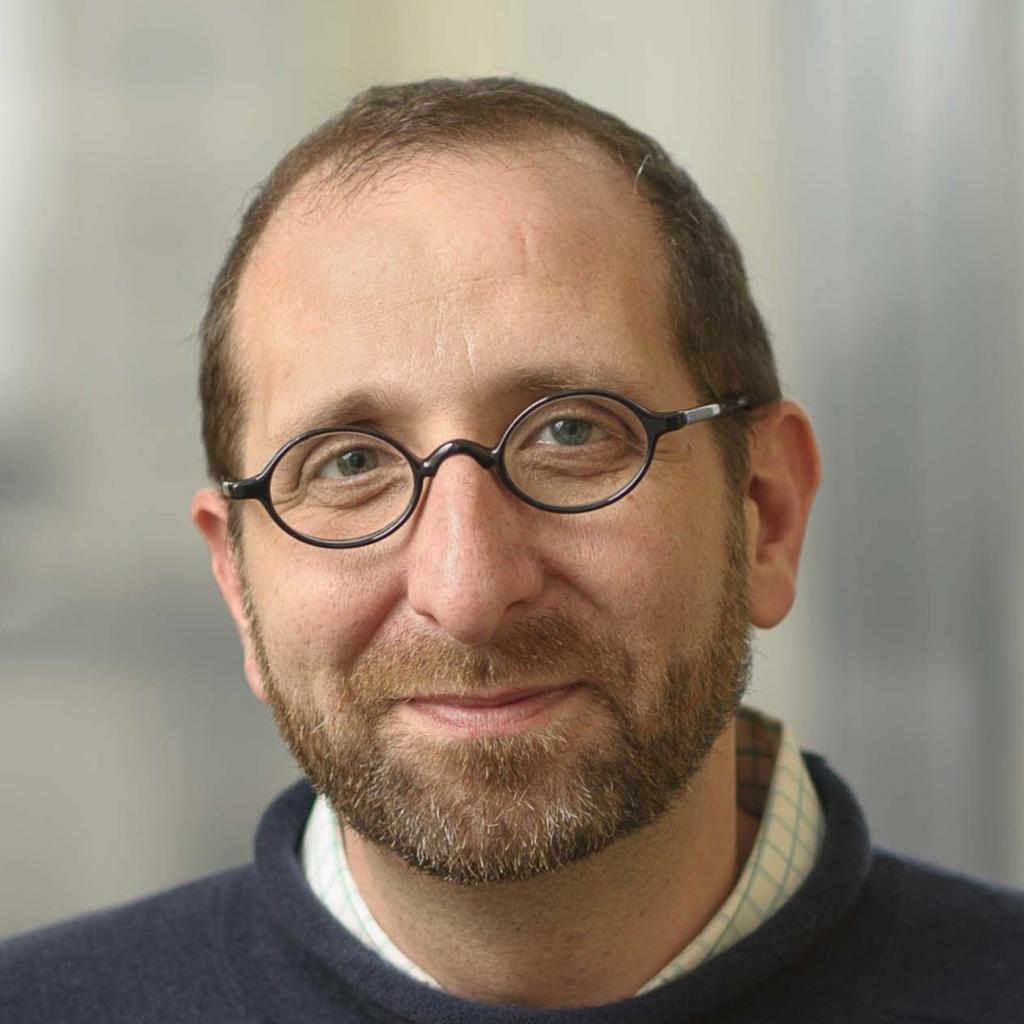
Richard White, M.D., Ph.D.
Memorial Sloan Kettering Cancer Center
Project Title: Evolutionary Dynamics of Melanoma Metastasis
Grant ID: DP2-CA186572
Richard White is a physician-scientist using the zebrafish to study basic mechanisms underlying cancer metastasis. He clinically trained in Internal Medicine at Yale-New Haven Hospital and Medical Oncology at the Dana Farber Cancer Institute/Massachusetts General Hospital. This was followed by a postdoctoral fellowship in Leonard Zon’s lab at Harvard Medical School, where he helped develop the zebrafish as a platform for studying melanoma genetics. His work as a postdoc also led to the development of the transparent casper strain, which enables high resolution in vivo imaging of tumor progression. In his laboratory at Memorial Sloan Kettering, he is using the zebrafish to investigate three core components of metastatic biology: 1) how do developmental lineage factors present in the cancer cell of origin impact metastatic capacity? 2) what factors in the microenvironment act as selection forces to promote or retard metastatic progression?, and 3) how does the genome of the cancer cell evolve over time and space during metastasis? The zebrafish is a unique platform for addressing these questions because its optical clarity allows for high-throughput, high-resolution in vivo assessment of cellular behavior, and is highly amenable to unbiased screening approaches. Prior work from his laboratory has demonstrated that fundamental mechanisms uncovered in zebrafish melanoma have direct applicability to the human disease. He ultimately aims to use the zebrafish to discover basic mechanisms of cancer cell metastasis in order to improve the management of patients with disseminated disease.

Wilson Wong, Ph.D.
Boston University
Project Title: Synthetically Reengineered T cells as the Next Generation of Smart Cancer Therapy
Grant ID: DP2-CA186574
Wilson Wong is an Assistant Professor in the Biomedical Engineering Department at Boston University, and a core member of the BU Biological Design Center. His lab is focused on developing synthetic biology tools in mammalian systems for cell-based immunotherapy. He received his B.S. degree in Chemical Engineering from UC Berkeley and Ph.D. degree in Chemical Engineering from UCLA under the guidance from Dr. James Liao. He did his postdoctoral work under the mentorship of Dr. Wendell Lim at UCSF and learned some immunology from Dr. Arthur Weiss.

Ying Zheng, Ph.D.
University of Washington
Project Title: A Microfluidic Bone Marrow Niche for the Study of Hematopoiesis
Grant ID: DP2-DK102258
Ying Zheng is an Assistant Professor in the Department of Bioengineering at the University of Washington. She received her B.S. in Engineering Thermophysics from University of Science and Technology of China in 2002, and Ph.D. in Biomedical Engineering of University of Michigan, Ann Arbor in 2008. Previously, Dr. Zheng worked as a postdoctoral research fellow at Cornell University with Abraham Stroock on vascular engineering and regeneration. Her laboratory is interested in understanding and building fundamental structure and functions for living tissue and organ systems.



